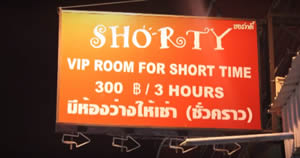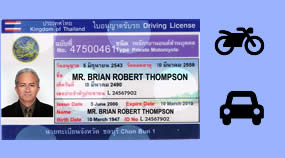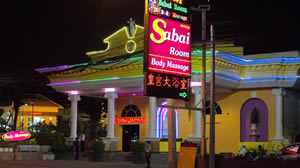Pita and the Thai Move Forward Party
The Move Forward Party is a progressive left-wing political party. They are known for their pro-democracy platform and their aim to remove military influence in Thai politics.
Pita Limjaroenrat, a member of the House of Representatives, is the leader of the Move Forward Party, the de facto successor to the dissolved Future Forward Party (2018). Pita led Move Forward to become the largest party in the 2023 general election, winning 151 seats.
Following is the transcript of the interview taken from the above video.
Interviewer: One specific measure that your party zeroed in on is amending the controversial lèse-majesté law. It could block you from forming a government. Why not just drop it for now?
Pita: Because it's what we had promised the people, and also, it was part of the campaign. Even though it's one of the 300 policies that we have submitted, there are a lot of challenges, not just in Article 112.
Interviewer: Because its the most difficult for so many Thais to swallow,
Interviewer: Being honest did you really expect to be on the cusp of being a prime minister at this stage?
Pita: Yes or no. I started off running for public office, helping Khun Tunathorn the Future Forward party. You know, I had a quick chat with him and we had a check on our policy alignment, and then he wanted me to help out with agriculture reform. So that was my expectation at the time, and then lots of things happened during that one or two years, and then I became the leader of the Move Forward party, and then it was clear that an election would have to come soon. Once it comes, that's when I become the prime minister candidate. So I think two or three years that I had made up my mind.
The Move Forward Party created a party anthem called "Step Up".
Interview continued:
Interviewer: Did you really expect to be in this position now?
Pita: Yes or no, if you went through all my interviews with the foreign media and the Thai media, I did my campaign management. I look at the data, the previous data, historical records of all the elections, local and national, and I saw that I had a political canvas over 160 seats.
The score was good, the candidate was strong, the competitors were weak, the customer voters requiring the country will change because they're younger than me. Fifty percent of them are younger than me. So, I had these numbers. The political canvas was 160. The rest is all about the probability of how we can turn this political canvas into seats. We got 151, so 90% probability.
So, it was planned, you know, based on my education. It was planned, it was analyzed, it was data-driven, a lot of big data involved.
Interviewer: But you surely didn't expect the result this good.
I was expecting the probability of 70-75%, and it improved over time. When you ask about my expectation 2 months before, 3 months before, maybe, you know. If I have this as a strategic political canvas for me, and then I would say that probability of 50 or 75, that depends on how strong our campaign was, how often our candidates went out to visit the constituency and our policies and things like that.
Interviewer: Your party is proposing a sweeping root-and-branch reform of a whole range of Thai life and Thai institutions. The first party in modern Thai history to have such an ambitious agenda. What is wrong with Thailand that you think needs changing?
Pita: Because Thailand is part of the global economy, part of a global order and there's always the "New Normal" in everything coming out from various walks of life, whether it's the pandemic that just hit the world, whether its political hotspots coming all around so with all this new normal that is affecting Thailand, we also need the new consensus to accomodate this new normal.
But what's wrong with Thailand in the past is that we couldn't come up with a consensus we still stuck to the old consensus in The New Normal so that's always a power struggle so what we're trying to do is to start off with the inconvenient truth, inconvenient truth that there's a need for Thailand to catch up with the world, with what's going on in business.
Before, I was just in time management, now it's just-in-case management, with what's going on with the coupling with the new definition of globalization, with the geopolitical risk. So, we need to change the way we think about it. We have to turn a lot about budgets towards these 21st-century challenges, climate change Asian society, digital disruptions, the pandemic rather than focusing on the old chalanges of forty or fifty years ago when it comes to like defense for example it's still very important but you need to be professional you need to be upgraded and not just you know having a lot of soldiers in your country will guarantee your National Security it's a totally different ball game.
Interviewer: Then, how will you do that? I mean, did you talk about changing the mindset of an entire bureaucracy, both outside and inside the parliament?
Pita: Outside and inside of the parliament, outside of the parliament I would argue that for the past 4 years, we have progressed a lot in terms of domination of ideas. You know, when it comes to economic structure, it's deeply rooted. Liberalization is one thing that we had been trying to do. We lost by two votes, you know. So, we've come way too far from what we had expected.
Marriage equality also passed, waiting for the new government to come in and pass the law.
So all these things were inconvenient truths once as well. Like four years ago, nobody would be discussing about it, talking about this. So, I think we've come quite far. And outside the parliament, if we can dominate the ideas that this kind of progress is a mutual benefit for all walks of life, you know, if the economy is not a trickle down economics, and it's a strong foundation of economic all around Thailand, not just Bangkok, it's going to be good for everyone for example.
Interviewer: You're trying to change an entrenched system with some very, very powerful and accountable institutions that have kind of kept it the way it is. This same establishment has thrown out elected governments in the past. It's banned prime ministers. Aren't they just going to do the same thing to you if you get into power?
Pita: Well, if you look at it from an Inside out perspective, it has happened in Thailand before, but I look at it from the outside in, and there are a lot of various countries around the world that had to go through the same kind of experience here in Thailand. An accountable invisible hands of power throwing out elected officials. So, if I look at the international experiences of how they came out of, how they broke the cycle, you know I came out of military coup, South Korea you know Indonesia and some of our neighbor our country our friends in Latin America so I look at them and I see that the politics of possibility, it's possible for you to break out of the cycle. Yet when I come back to Thailand, I have to make sure that I'm not too concerned about it, but I'm not careless about it as well.
So, I have to have a strong legal team that helps me, and Iwill have to make sure that I'm an accountable, transparent politician myself to be able to make sure that I don't fall easily for all those things that happen in Thailand.
Interviewer: When we talk about this sort of establishment and things being stuck the way they are, I mean, talking about Thailand's problem mostly because you've got an army that keeps interfering in politics, we have the sensitive issue of the monarchy which we're all a little constrained but it's there, and of course, you've got a kind of oligarchic business culture where big giant businesses have enormous power in this country.
Where does the focus lie in this sort of when you're trying to make the country more modern and more flexible?
Pita: I think it's military and money, and then also the people around the monarchy. That's an understanding of the role of the monarchy in constitutional monarchy and understand what the monarchy should be in modern Thailand or in the 21st century. So, how we take care of all these first two in terms of military and money, increase accountability and increase transparency. A lot of things that were done in the past, you know, under the table, a lot of laws that were amended years ago, and nobody knew about it.
So, that's why we need to make sure that there's some accountability to what they do, to how they use their money.
Interviewer: How do you do that? They have gone unchecked for decades.
Pita: First of all, for example, a lot of wealth in the military all around Thailand that was managed by the military. We're going to pass a law that it has to be managed by the Ministry of Finance. So, a lot of revenue that comes from the golf courses, from the hotels, from the wedding planning services, from the other real estate that they have, it has to be reunited back inside the government budget system.
For example, and that money will be accountable, which is part of the military conscription, just to make sure that they don't have all these numbers of the army running around for their own perusal, as well as making sure that there is some accountability in terms of how the military will be used professionally to take care of the national threats outside of the country.
Interviewer: The generals don't want that, they are going to resist.
Pita: Yes the generals will not like that, but the majority of the army would like that.
If you look at the voting results or in the country, if it's the army base, we won. So, I think you know, it's not just about keeping the army management in the dark of how it's done inside the barracks, inside their own army camp, but also just to make sure that the rest of the country understand what's going on inside. And I think you know it's about 1% versus 99% all around the country, including the army as well. So, I think the people that it's part of the unfair dark moments inside the army would understand what we're trying to do in the army there needs to be a dialog between what we are trying to do and the army for sure.
Interviewer: And the Monarcy. You've called for a conversation about the relationship between the monarchy and the people, but this is such a sensitive subject. Many people would say Thailand just isn't ready for that.
Pita: I would argue again that if we were to have an interview together with BBC 4 years ago, this question wouldn't be on the topic. But I think we have some maturity and we have some tolerance to really speak up, speak out about the monarchy in the more mature way.
Interviewer: A lot of Thais don't have that they're not that ready. You're gonna face some very difficult opposition.
Pita: Yeh but that's ................. like I explained to you I mean in the beginning it was a taboo that you know even a mild criticism or even a mild question is is unacceptable but nowadays you know talking in the parliament is starting to become possible talking with the media is now possible so now that it's more neutralized and if we speak about this in the most mature and careful way I think people will start to understand even the conservatives that understand what the role of the monarchy and the modern Century would be in the 21st century in Thailand should be and how constitutional monarcy should be governed I think that is when we have a good conversation and dialog and that takes time, I understand.
Interviewer: The one specific major that your party zeroed in on is amending the controversial lèse-majesté law 112, law in Thailand yet that is the issue on which many senators say they cannot support you it could block you forming a government why not just drop it for now and say OK let's put push this aside for this term of government in order to overcome the opposition of the Senators and focus on other issue.
Pita: Because it's what we had promised the people and you know we've been clear before the campaign we have submitted the law 3 years ago two years ago three years ago way before the election and also it was part of the campaign even though it's one of the 300 policies that we have submitted there's a lot of challenges not just an article 112 but it's it's part of of a political situation nowadays as well so it was one out of 300 policies.
Interviewer: But its very contraversial it is the most difficult for so many Thais to swallow.
Pita: We have to separate it out you know if we have enough mandate we have the vote of 14 million people and they understood. It was clear, it was transparent, that this one of the things one of the agendas that we wanted to push and then of course there's some Senators, appointed senators, that didn't agree that you know the sentiment of the era has changed this inconvenient truth.
Interviewer: They have the power to block you.
Pita: Yes for one for one last year and I would disagree with the question whether all the senators would be the same. I think that would be a quick brush of the picture as well there's a lot of senators that I have spent some time with during the past four years that understand you know they might not understand the first in the beginning but once they understand that the desire to do and the details they actually agree with I don't want the monarcy to be used as a political weapon to destroy people or to jail a juvenile at the age of 15 years old anymore so you know it's about dialogue again it's about conversations but I think to assume that all Thais agree or disagree or to assume that all Senators agree or disagree that's a bit of a quick brush all over.
But I think if I get a chance to sit down and talk to the people who are opposing it or people who actually wanted to increase the penalty of Royal defamation I think they will be able to find a common ground or consensus going forward and the best place to have a dialogue about this with the majority with transparency is the parliament. And that's where ...in the first place.
Interviewer: You have a very broad and ambitious agenda some of the sort of changes that you're talking about could take a very long time. Are there quick win policies that you have that you can pass fairly quickly to show people that you can get things done.
Pita: I think so. Yes, it has to be through four or five referendums, but I could start off with the first referendum asking the people whether they want a new Constitution by the people or not. If that's the question that is passed, then we can start the process within the first 100 days to be clear.
In terms of economics, liquor liberalization, we have the same market size as Japan. We have two producers; Japan has 40,000 producers. So just by having a minister of finance, we could just amend one of the ministerial orders to say that you can't have a barrier to entry just because of registered capital on the size anymore. So that way we could decommoditize products here in Thailand, from rice to tapioca to sugarcane to all the fruit here in Thailand. So that could be a way to jump-start the economy.
Electricity prices have to go down by about 20-25%. Negotiating with the Ministry of Energy, as well as the energy mogals,
Interviewer: They have too much money.
Pita: They are having too much benefit from the previous government through contracts that are unfair to the people. So that's something that has to be amended. The last thing is to help the SMEs. Within the first hundred days, it's called SME Lottery. It's something that we learned from Taiwan, just to have incentives for people to go to do their shopping at the SME outlets, rather than large enterprises all the time.
In terms of our future education, I think we can start off by making sure that the teachers are back in the classroom and without any bureaucracy anymore. So these are things that during the past 4 years as an MP, we saw that there are things that, with the executive power without that additional budgets from the parliament, could actually push for change. A lot of things have to be done through legal amendments. Military conscription, that's, you know, give it the first one year in order to push it through the agenda in the parliament. It look pretty realistic when it comes to these things. If we have to do something that demanded more budget probably be impossible within the first 100 days.
Interviewer: How would your government's foreign policy differ from its predecessors?
Pita: Well, not quiet diplomacy, not bamboo diplomacy, but a rule-based one would be an a la cart not a buffet, but more like a poker not another chess game. You know, an alacart not a buffet, in the sense that for the past decade in Thailand, it was pretty clear because of the military junta's relationship with a certain country and also the Chinese. So definitely, we need to engage the international community more.
We have to rebalance in the sense that it's a rule-based diplomacy world. You know, when we rebalance to be a strategic competition between the two, the right thing to do for the new world, what happens, we need to speak out. you know with what happened in Russia Ukraine we have state but if we stick to the rules that you know a bigger country cannot aggress a smaller country it's against you and Convention it's against we have to speak out And it doesn't mean that we are siding with the Russians. That doesn't mean that we are siding with the Ukrainians. But we're siding with the rule-based world. And if that's the case, I think it's time for, you know, middle powers like us to stick together. And it's time for us to lead.
Interviewer: So a Pita Limthongkul government would be a lot more vocal internationally.
Pita: No words, no weight.



















